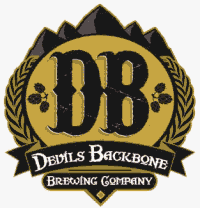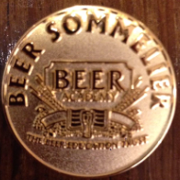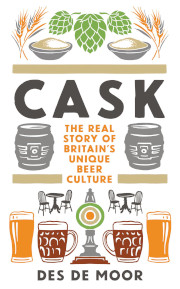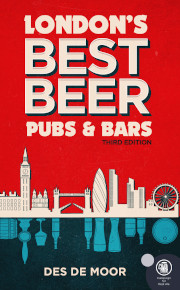Great British Beer Festival 2011
ABV: 5.8%
Origin: Roseland, Virginia, USA
Website: www.dbbrewingcompany.com

Devils Backbone Brewing Company
Many people assume UK lager is a relatively recent phenomenon, dating from the 1960s when the emerging big brewing groups first made a concerted effort to market a handful of rather undistinguished national brands. In fact British attempts to brew and sell cold fermented, lagered beers in the central European style date back at least to the 1870s, perhaps even the 1840s, and Scottish lagers like Tennants have been brewed regularly since the 1880s, but the market south of the border long proved resistant. The 1930s were another period of innovation when much groundwork was laid for contemporary industrial brewing: the big brewers were busy experimenting with keg beer as well as turning again to lager. The brewing techniques so developed might have become widespread much earlier were it not for World War II, when pushing a beer style associated with Germany would have been ill-advised for obvious reasons.
Southwark brewer Barclay Perkins, once the biggest brewery in the world in porter days, maintained a separate lager brewhouse within its plant in the 1930s, kept carefully isolated from the rest of the brewery to avoid cross-contamination of yeasts. Beer historian Ron Pattinson, who writes the Shut up about Barclay Perkins blog, discovered this brewed a whole range of styles, including dunkel ‘dark’ lager of the sort familiar in Munich. Ron has been involved in several historical recreation projects with British and mainland European breweries but the resurrection of Barclay’s London Dark Lager from 1930 took him to rural Nelson County, Virginia, a long way from London’s industrial riverside, with its landscapes familiar from 1970s hillbilly soap The Waltons. Here in the village of Roseland is the award winning Devils Backbone brewpub, well-equipped for small runs of craft brewed lager, where Ron worked with head brewer Jason Oliver and beer blogging expatriate Scot Alastair Reece, who lives in nearby Charlottesville. Supplies of the beer in cask conditioned form then journeyed over 6,000km to their spiritual home city, to be served at the Great British Beer Festival in 2011.
Following the original recipe as closely as possible, the beer is brewed entirely from English malt — Munton’s lager and crystal malts, Hugh Baird Maris Otter pale malt, with extra colour and flavour from Thomas Faucett roasted and unmalted barley. Hops are entirely Czech Žatec (Saaz), as they would have been in the 1930s, and the beer is properly lagered for at least six weeks.
The result is a chestnut brown beer with a fine beige head and a mild malty aroma with a tart fruity touch and authentically dunkel scents of caramel and chocolate. The drying, roasty palate also has quite a tart bite with underlying sweetish caramel and an emerging lightly hoppy note. A pleasant, juicy finish is moreishly dry at first, with some chocolate and roast character, and lingers with a gentle sweetness.
If Barclay’s original had tasted anything like this, it might well have fooled a visiting Münchener, but I can understand how it would have puzzled English drinkers with porter and mild as their model of dark beer. This version is well worth sampling as a fine drink in its own right, besides its rarity value as a Virginian microbrewed recreation of an industrially brewed London interpretation of a mainstream Bavarian style.
Read more about this beer at ratebeer.com: http://www.ratebeer.com/beer/devils-backbone-barclays-london-dark-lager/149453/





Leave a Reply